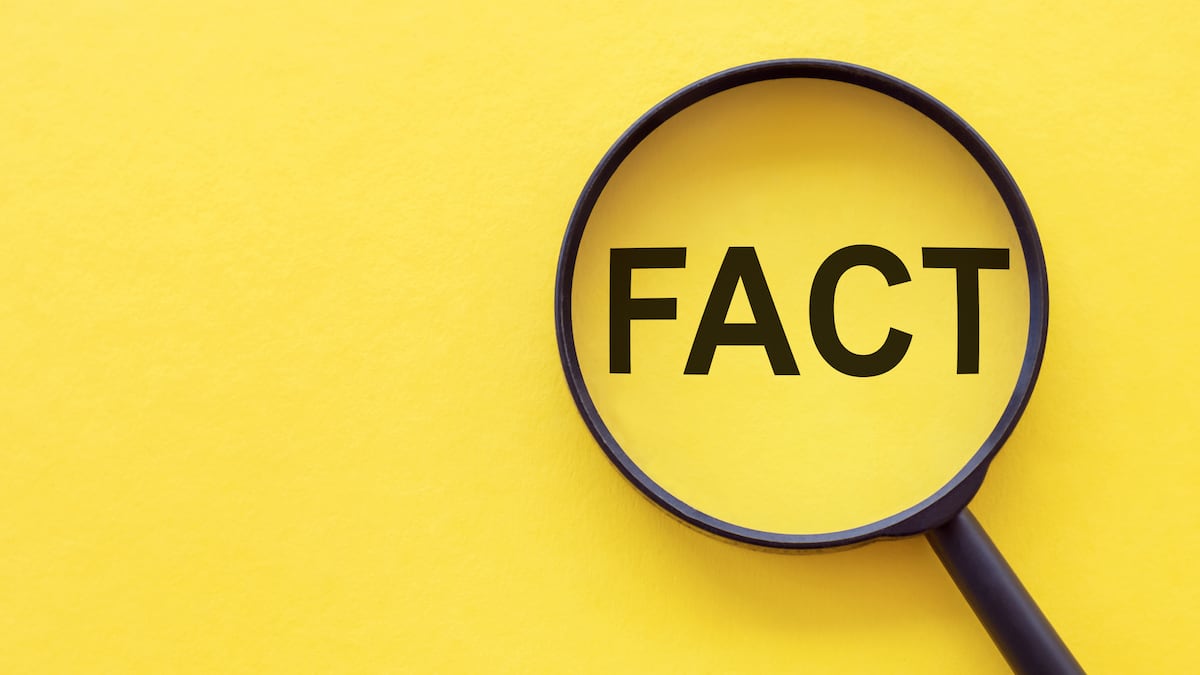- It’s easy for journalists to trust the numbers provided by reliable sources.
- However, as DL News’ reporter Inbar Preiss’ recent reporting on tech investments in France shows, blind faith could lead reporters to run the errands of political think tanks.
Good journalists take nothing for granted. Statistics, in particular, can be tricky.
The late former French president Valéry Giscard d’ Estaing is said to have wowed his university examiners with a dazzling presentation of figures to defend an economic theory.
When he had finished, he told them: “if you wish, I will now prove that the opposite is true.”
Last month, DL News’ regulation correspondent Inbar Preiss moderated a discussion at a web3 forum in Paris.
One of the panellists, Paul Midy, a member of the French National Assembly, referred her to a report he had written on how to boost investment in small companies.
Inbar quoted the report in her story Macron stokes Paris crypto scene with tax breaks and clear rules, but will VCs remain wary?.
NOW READ: French regulators race to get a jump on MiCA and make Paris Europe’s web3 hub
However, the reporting was not as straightforward as one would imagine. Whilst fact-checking it, she uncovered new information, providing crypto journalists with a reminder to never take things at face value.
Midy’s report, commissioned by the French government and released in June, runs to 113 pages in French with an additional 20 pages of annexes.
Many journalists would have taken the data in it at face value. Inbar did not.
“I generally don’t like to cut and paste statistics without knowing where they come from,” she said.
“I dug into the report, found some interesting statistics but then tried to go back and find where they came from and that was a bit of a maze.”
Her difficulty was with a footnote to a paragraph that said that private investment in research and development of new technologies in EU countries reached a total of €40 billion in 2020.
Spending in the same year by China amounted to €64 billion, while the United States hit €200 billion, it said.
The figure for China troubled Inbar.
“China is a very complex country,” she said, and comparisons with the EU or the United States are problematic.
Blockchain development in particular is largely government-funded in China. While its trials with the Beijing-backed digital yuan have moved forward, cryptocurrencies have been banned to various degrees for years.
Pan Gongsheng, the new governor of the People’s Bank of China, is not a fan of digital assets.
“Sit by the river, watch, and one day the corpse of Bitcoin will float past you,” he reportedly said at a forum last year.
NOW READ: China’s expected next central bank chief once likened Bitcoin to ‘a corpse’ floating down a river
Facts like these highlight why Inbar was cautious when deciding whether or not to report on the figures.
Moreover, the source for the figures was an article published by the Institut Montaigne, an independent Paris think tank.
Inbar discovered that the link in the footnote seemed to be broken. She emailed the Institut Montaigne, which sent her a new link.
“When I got a chance to look at the article it said that all the data came from a book called Europe, Tech and War, but I couldn’t find the book and see where the author got his sources,” Inbar explained.
“Also, when I googled the Institut Montaigne, one of the first things that came up was that they advanced the agenda of the companies funding them. That might be handy for a politician but not for a journalist.”
The Wikipedia entry for the institute does say that in English, although not in French.
Inbar acknowledges that that was “not the most rigorous research”, but the difficulty she had trying to confirm the origins of the data was enough for her to seek another source. She turned to PitchBook, the leading source for data on global capital markets.
She also contacted another data group but they were unable to provide statistics in time.
None of this means that Paul Midy’s report was inaccurate, or that the Institut Montaigne’s data was tendentious.
Only that Inbar was right to question the statistics and the sourcing. As a reliable journalist should always do.
Robert Holloway is DL News’ ombudsman and whistleblowing officer. If you have any views on our reporting or questions about journalistic ethics, then don’t hesitate to drop him a line at robert@dlnews.com.
